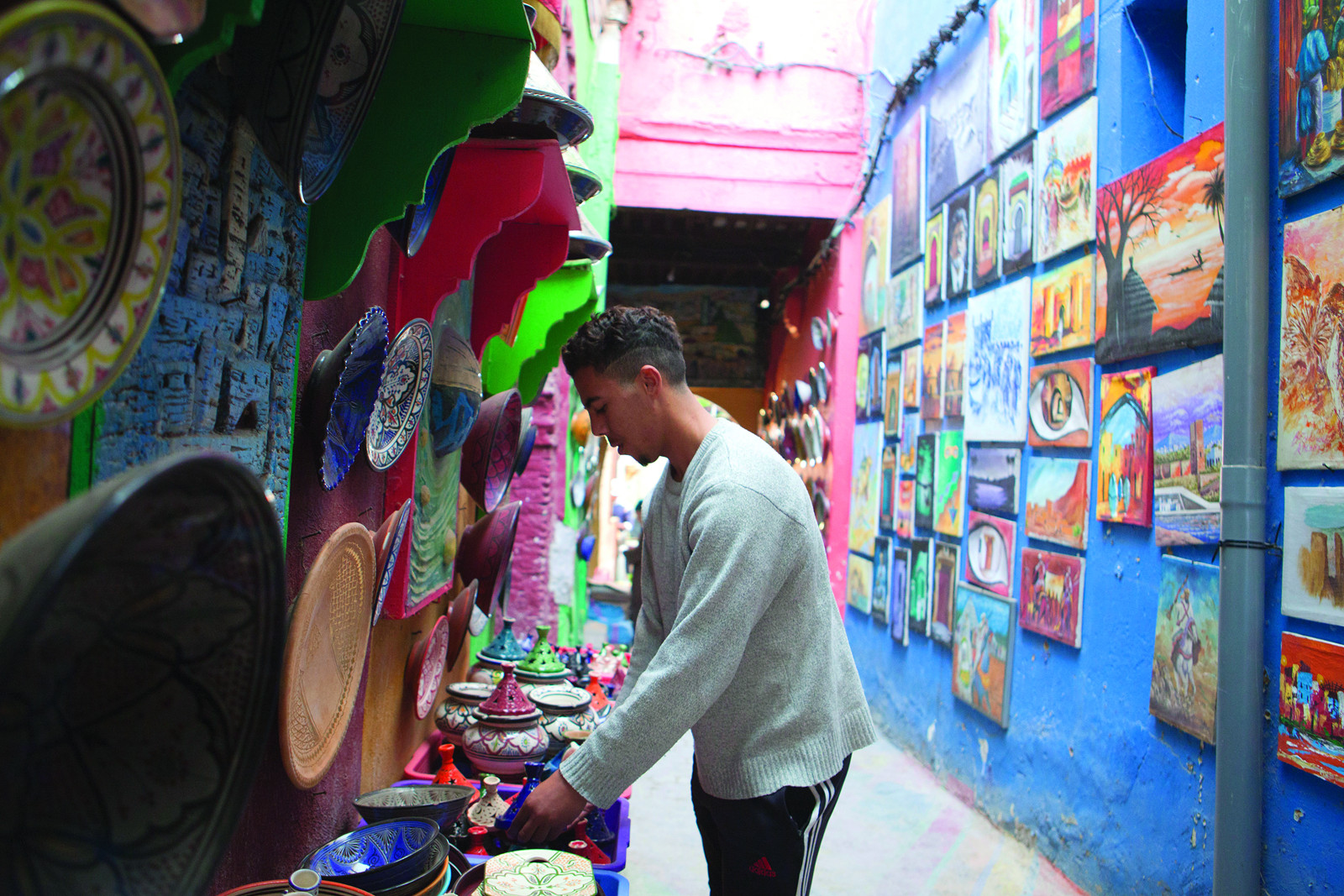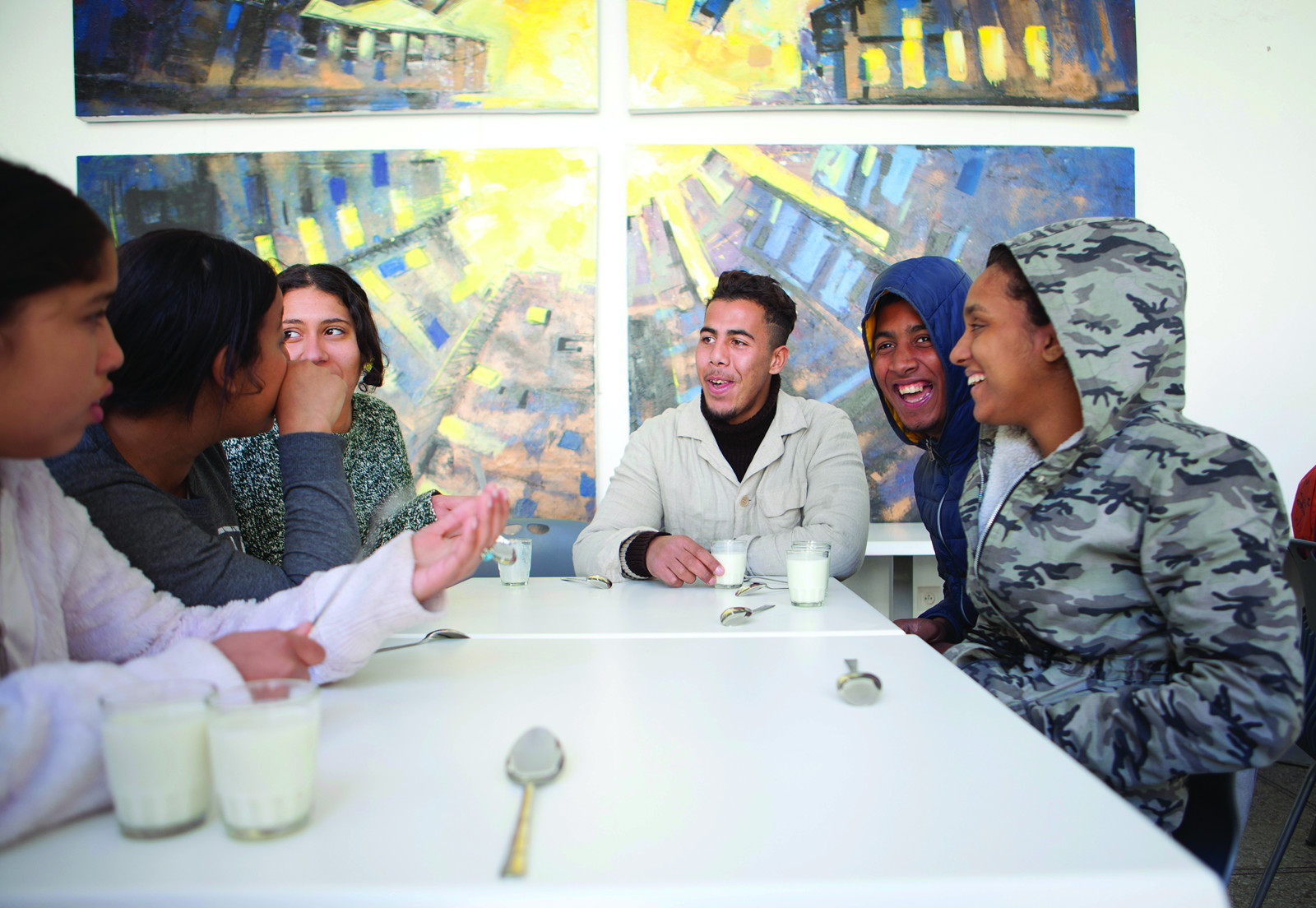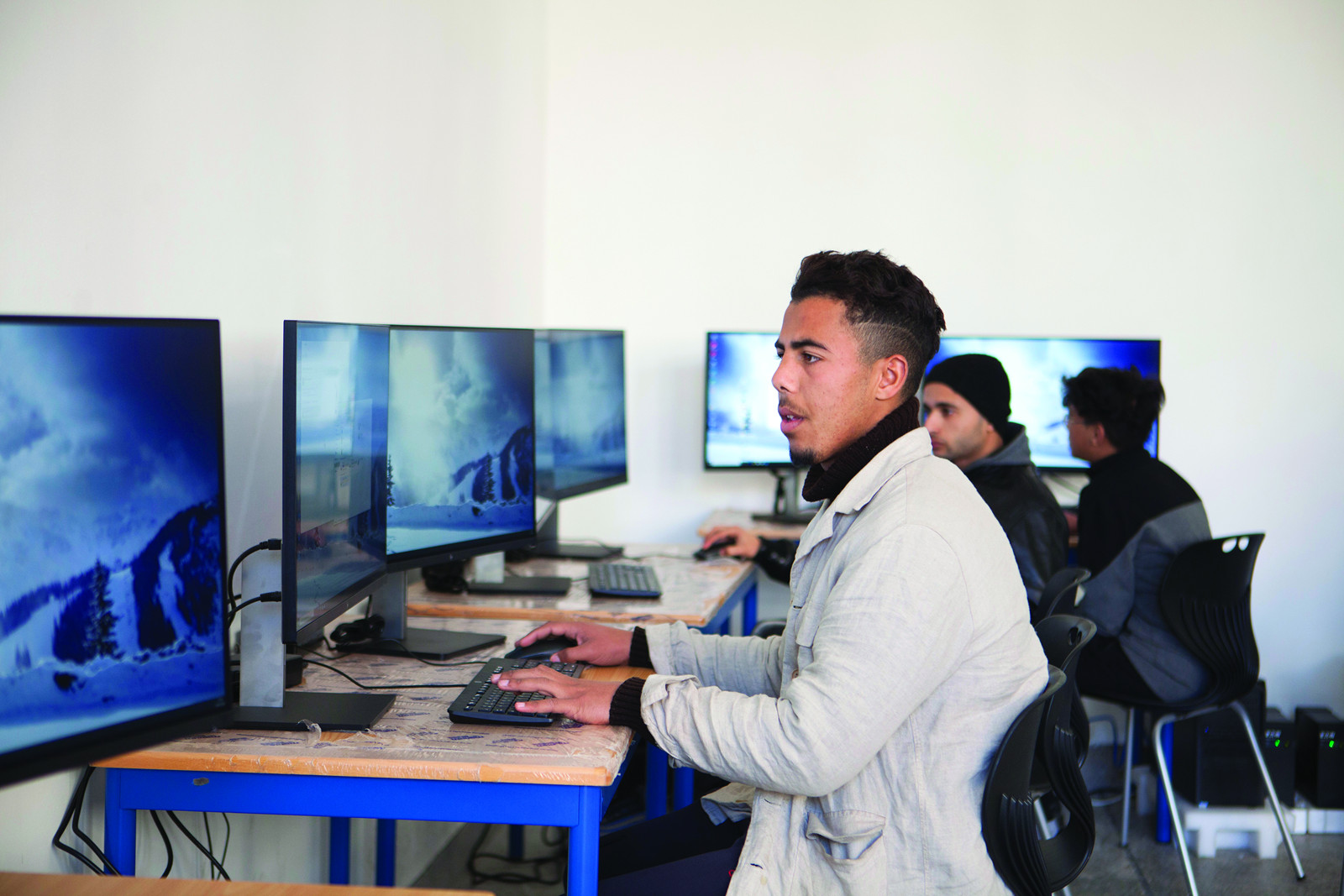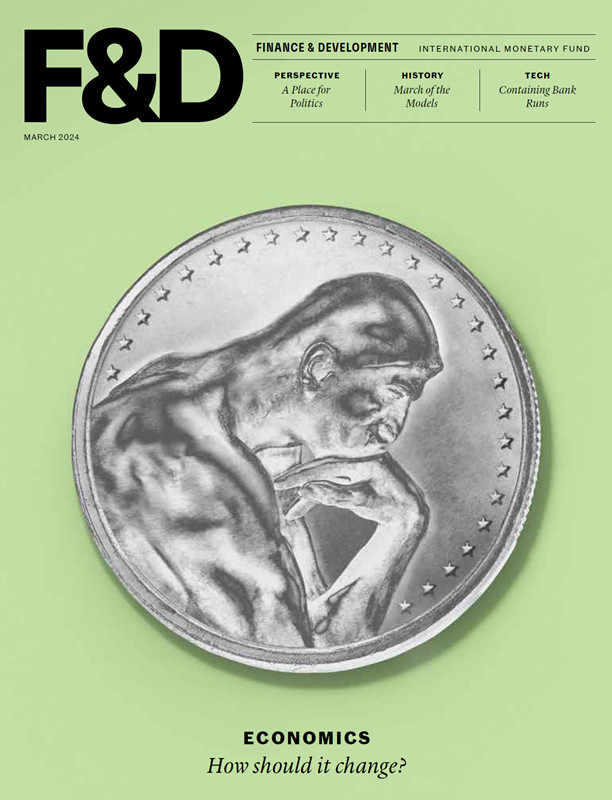Abdel Ilah Saffi, Morocco

Since leaving school three years ago, Abdel Saffi has been searching for a purpose in life. With no degree, his options are limited. The Fez native has tried his hand at various things—working in construction, selling pottery, and other odd jobs.

At a teacher’s suggestion, he signed up for classes at the Moulay Ali Cherif School, a center in Fez that provides vocational skills, with a special focus on the performing arts. The school teaches technical skills, such as computer coding and light and sound design, along with acting and contemporary dance.

Saffi was immediately taken with the center’s performance arts courses. “They really resonated with me,” he says. He is inspired by Rachid Ouahman, one of his mentors at the center who is also a leading young performer in Morocco.
Saffi sometimes thinks about going abroad, as do his four out-of-work brothers. Youth unemployment tops 25 percent in Morocco, and people on the cusp of adulthood wonder, understandably, if the grass is greener somewhere else.
An oft-cited problem with Morocco’s educational system is the mismatch between the skills it teaches and those needed in the labor market. To reduce such mismatches, Morocco has increasingly relied on extending the vocational training system, resulting in a proliferation of centers like the one Abdel frequents. Morocco has more vocational trainees than average countries for the region—yet job prospects for vocational training graduates remain weak.

For Saffi personally, however, it has proved a lifesaver. He finds that the vocational center provides more valuable guidance on skills for the future than a conventional school. “I am finding both my passion and my profession,” he says.
Opinions expressed in articles and other materials are those of the authors; they do not necessarily reflect IMF policy.








